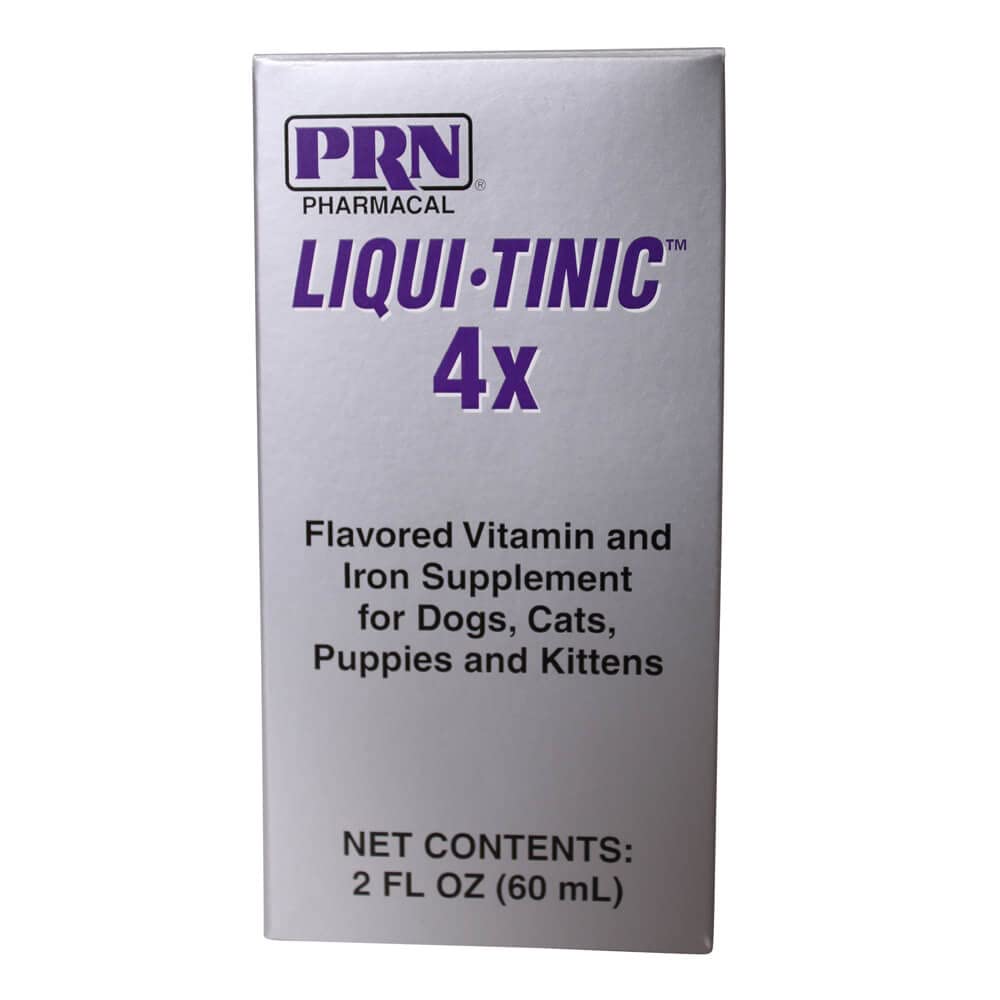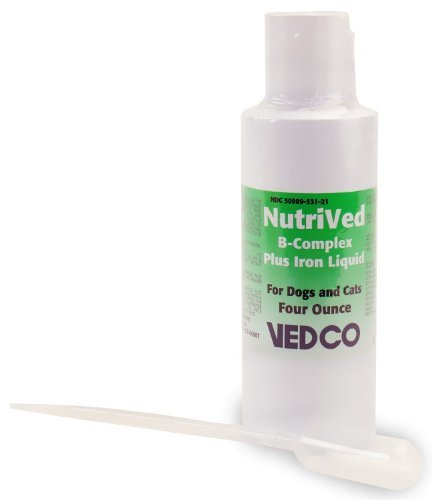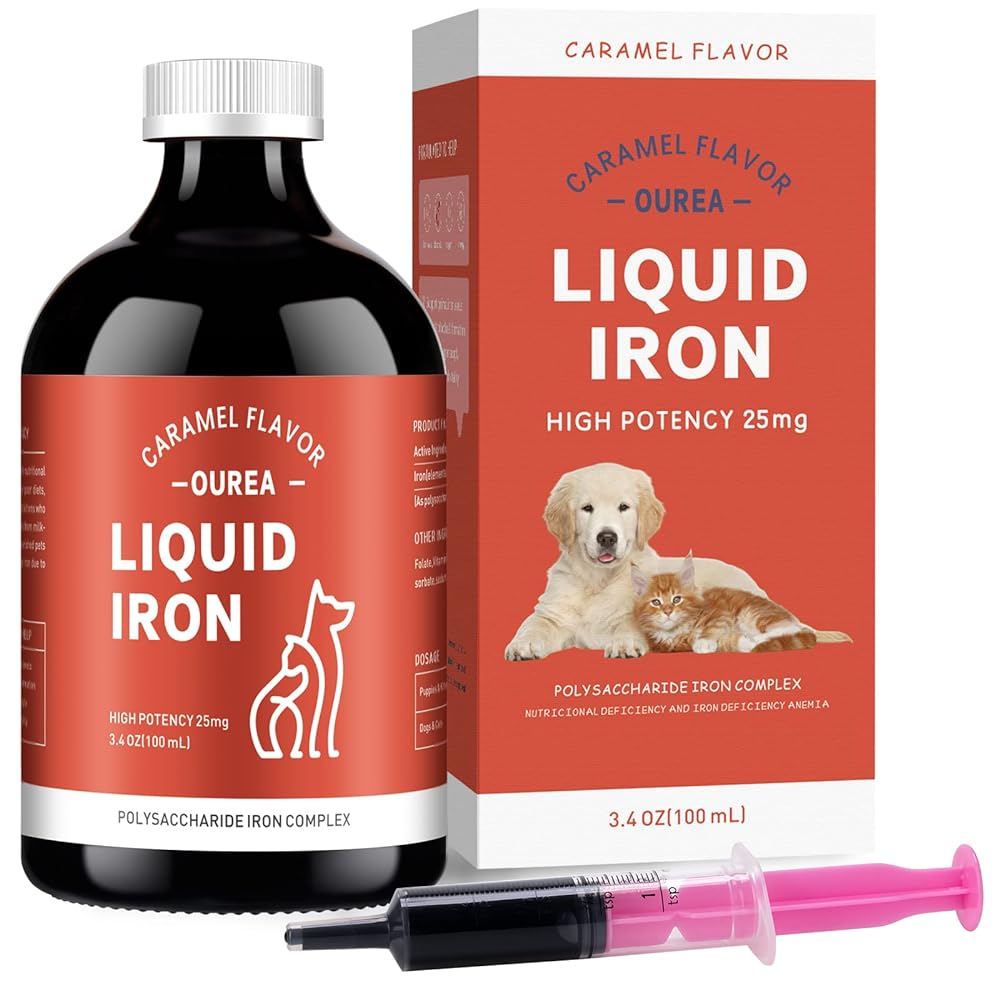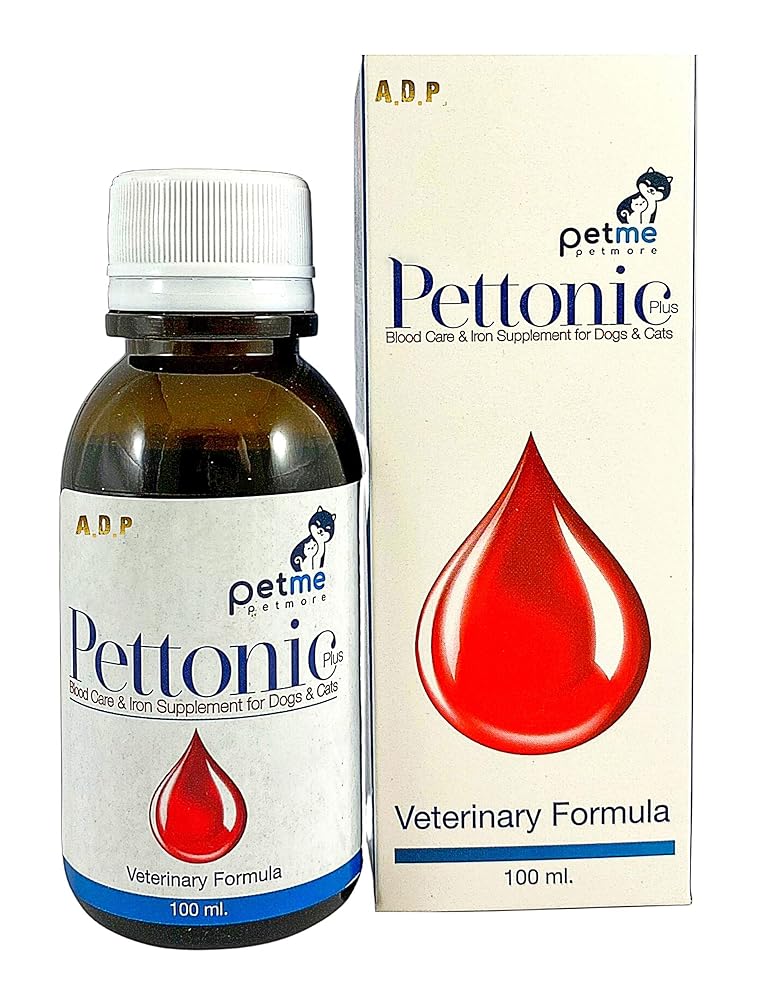iHeartCats is reader-supported. When you buy via links on our site, we may earn an affiliate commission at no extra cost to you.
Iron is an essential nutrient that plays a crucial role in various bodily functions, including oxygen transport and immune response. While most cats receive sufficient iron from a balanced diet, certain health conditions can lead to iron deficiency, requiring supplementation. If your veterinarian has recommended iron supplements for your feline friend, you might be wondering where to start. This article is designed to guide you through the best iron supplements for cats, focusing on safety, effectiveness, and ease of administration.
#1 – Liqui-Tinic 4X Flavored Vitamin and Iron Supplement for Dogs, Cats, Puppies & Kittens, 2 oz.
Liqui-Tinic 4X is a flavored vitamin and iron supplement designed for dogs, cats, puppies, and kittens. It contains B complex, amino acids, and vitamins to provide essential nutrients for overall health. This product is suitable for pet owners looking for an affordable and convenient way to supplement their pets’ diets.
Best For: Best overall.
#2 – Nutrived B-Complex with Iron – 4 oz.
Nutrived B-Complex with Iron is a 4 oz. supplement that provides a high potency of B vitamins along with iron. This product is designed to support energy production, promote healthy metabolism, and maintain overall wellness. It is suitable for individuals looking for a convenient and affordable option to supplement their diet with essential B vitamins and iron.
Best For: Individuals on a budget looking for a high potency B Complex supplement.
#3 – Iron Anemia Supplements for Dog and Cat – Liquid Iron Supplements for Dogs and Cats – Supplement for Anemia in Dogs, Promotes Blood Health, Easy to Digest and Absorb
Iron Anemia Supplements for Dog and Cat is a liquid iron supplement developed by veterinarians to provide nutritional support for addressing nutrient deficiencies and anemia in cats and dogs. It contains an easily digestible polysaccharide iron complex to ensure the overall health of pets and minimize stomach discomfort. This supplement helps enhance red blood cell regeneration, boost energy and vitality, and can be easily administered by dripping it into the pet’s mouth or mixing it into their food.
Best For: Anemia in dogs and cats
#4 – PETTONIC 100 ML. Tonic Pet Booster Liquid Dog Blood Support Iron Supplement for Dogs & Cats Puppies Kitten Food Multi-Vitamins Folic B6 B12 Promotes Red Blood Cell, Fast Increasing Energy & Immunity
Pettonic 100 ML is a liquid tonic that serves as a pet booster and blood-supported iron supplement for dogs and cats. It is formulated with a combination of vitamins and minerals such as folic acid, B complex, and iron to promote optimal health, increase red blood cells, and boost energy and immunity. The product is manufactured using a direct compression method to prevent the denaturing of vitamins, and it is made with high-quality raw materials from Germany.
Best For: Best for all dog and cat multivitamin and amino acid supplementation.
What Are Some Reasons a Cat Might Need to Take an Iron Supplement?
Cats may require iron supplements for several reasons, most commonly related to conditions that cause iron-deficiency anemia. Here are some common scenarios where iron supplementation might be necessary:
- Blood Loss: Whether due to injury, parasites like fleas or internal parasites, or gastrointestinal bleeding, significant blood loss can lead to iron deficiency.
- Poor Diet: Cats fed a diet that is not well-balanced and lacks essential nutrients, including iron, may require supplementation.
- Chronic Disease: Conditions like chronic kidney disease can interfere with nutrient absorption and utilization, sometimes making supplementation necessary.
- Post-Surgery: After surgical procedures, especially those involving blood loss, a cat might require iron supplements to speed up the recovery process.
- Pregnancy and Lactation: Female cats that are pregnant or lactating may require extra iron to support both their needs and those of their kittens.
- Young Kittens: In some cases, very young kittens who are not nursing adequately may require iron supplementation to support rapid growth and development.
Always consult with a veterinarian for a proper diagnosis and treatment plan if you suspect your cat has an iron deficiency.
Frequently Asked Questions About Iron Supplements for Cats
1. Why might my cat need an iron supplement?
Cats might require iron supplements if they have iron-deficiency anemia, which can be due to various causes such as chronic blood loss, poor diet, or certain diseases. Iron is essential for producing hemoglobin, which carries oxygen in the blood. Without sufficient iron, your cat might show signs of fatigue, weakness, and pale gums.
2. What are the symptoms of iron deficiency in cats?
Common symptoms include pale or white gums, rapid breathing, lethargy, weakness, reduced appetite, and an increased heart rate. Cats may also display signs of pica, where they eat non-food items, due to cravings related to mineral deficiencies.
3. Can I give my cat human iron supplements?
It’s crucial not to give cats human iron supplements without consulting a veterinarian. Human formulations might contain higher dosages or other ingredients that could be harmful or toxic to cats. Always choose products specifically designed for feline use.
4. Are there any side effects of giving iron supplements to cats?
While iron supplements can benefit cats with deficiencies, overdosing can lead to side effects like gastrointestinal upset, dark stools, vomiting, diarrhea, and in severe cases, iron toxicity. It’s essential to follow the recommended dosage and monitor your cat for any adverse reactions.
5. How can I ensure my cat is getting the right amount of iron in their diet?
A balanced commercial cat food should provide sufficient iron for most cats. However, if your cat is on a homemade diet or has specific health concerns, consulting with a veterinarian or pet nutritionist can help ensure they get the necessary nutrients, including iron.
6. How is iron deficiency diagnosed in cats?
A veterinarian can diagnose iron-deficiency anemia through blood tests, specifically a complete blood count (CBC). This test will show the number and appearance of red blood cells and may reveal a decreased number or pale appearance, indicating anemia.
7. Are there natural food sources of iron for cats?
Yes, meat is a primary source of iron for cats. Organ meats, like liver, are particularly high in iron. Feeding a varied diet that includes quality animal proteins can help ensure your cat gets adequate iron.
8. How long will my cat need to take iron supplements?
The duration depends on the severity of the deficiency and its underlying cause. Some cats might only need supplements for a short period, while others with chronic conditions might require longer treatment. Regular check-ups with a veterinarian are crucial to monitor and adjust treatment as necessary.
9. Can kittens be given iron supplements?
If a kitten shows signs of iron-deficiency anemia or is at risk due to factors like parasitic infection, a veterinarian might recommend iron supplements. It’s essential to ensure the appropriate dosage and product for kittens to prevent side effects.
10. Are there alternatives to oral iron supplements?
In severe cases of iron-deficiency anemia or if a cat cannot tolerate oral supplements, a veterinarian might consider injectable iron or even blood transfusions. These alternatives can provide a faster response in critical situations but are generally used when oral supplementation isn’t feasible or effective.
Conclusion: Best Iron Supplements for Cats
Iron supplements can be a vital component in managing specific health issues in cats, such as anemia or other conditions that lead to iron deficiency. However, the quality of the supplement and its compatibility with your cat’s needs are paramount. Always consult with your veterinarian for a diagnosis and appropriate treatment plan, including the use of iron supplements. We hope this guide has provided you with valuable insights into selecting the best iron supplement for your cat’s unique needs, contributing to their overall well-being and quality of life.





